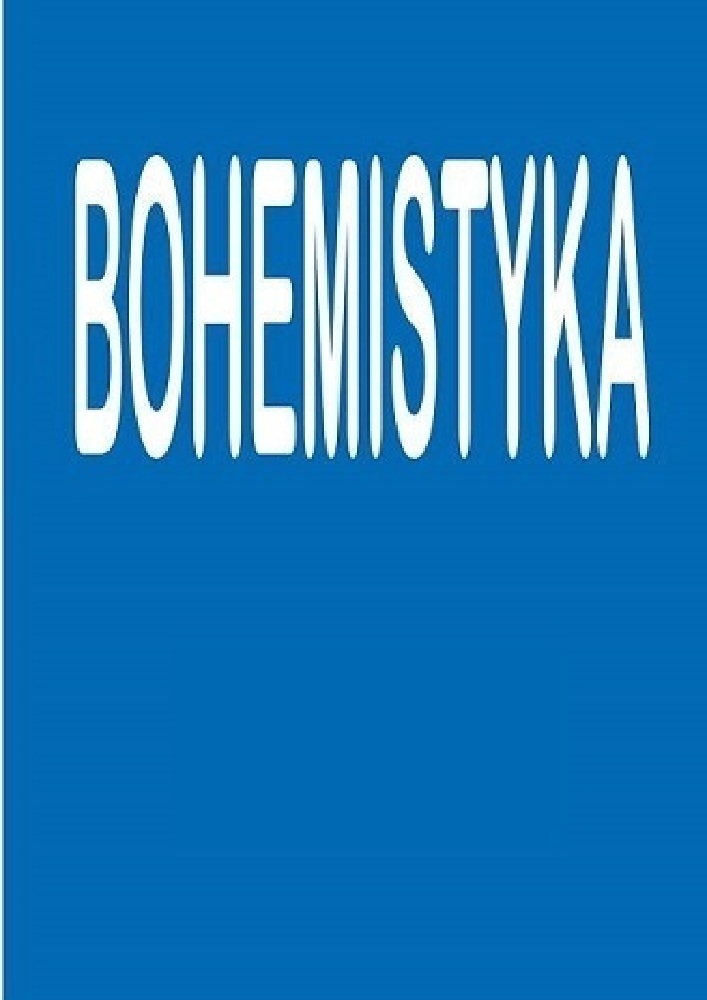Abstract
The article focuses on a role of recipient in creating world depicted by authors writing in different conditions: as a domicile writer and as a writer in exile. As an example three novels were used: Báječná léta pod psa (1992) by Michal Viewegh, Ledová tříšť (Treibeis, 1992) and Zjasněná noc (Verklärte Nacht, 1997) by Libuše Moníková. Pascale Casanova’s methodology of dividing literatures and languages into two groups: „weak” and „strong” or „small” and „large” was applied. Author’s different circumstances lead to different styles of composition of literary text: a domicile author is more intimate with their readers, uses mental leaps, irony and metaphors whereas an author in exile has to explain everything about their homeland, which results in comprehensive nearly essay-like passages of text. Reflections lead to a conclusion that writing is an act of patriotism for Moníková, who wants to familiarise her readers with the history of her motherland. On the other hand Vieweg’s writing is an act of self-expression.
References
Casanova P., 2002, Consecration et accumulation de capital litteraire. „Actes de la recherche en sciences sociales” 144, s. 7–20.
Casanova P., 2012, Světová republika literatury, przeł. Č. Pelikán, Praha: Karolinum.
Cornejo R., 2004, Ledová tříšť se prolamuje. K recepci díla Libuše Moníkové v její vlasti. „Labyrint Revue”, č. 15–16, s. 77.
Čulík J., 2007, Hakl a Víewegh: jak se vyrovnat s banalitou života. „Česká literatura” 55, č. 5, s. 669–706.
Delius F. C., 1998, Literatura jako nejvyšší forma vlastivědy. „Literární noviny”, č. 7, s. 9.
Głowala W., 1983, Próba teorii eseju literackiego, [w:] E. Miodońska-Brookes, A. Kulawik, M. Tatara [eds.], Genologia polska. Wybór tekstów, Warszawa: Państwowe Wydawnictwo Naukowe, s. 477–495.
Hutcheon L., 2007, Teoria parodii. Lekcja sztuki XX wieku, przeł. A. Wojtanowska, W. Wojtowicz, Wrocław: Oficyna Wydawnicza ATUT.
Moníková L., 2001, Ledová tříšť, przeł. R. Tomanová, Praha: Alois Hynek.
Moníková L., 2009, Zjasněná noc, [trad.] J. Zoubková, Praha: Alois Hynek.
Pfeiferová D., 2009, Doslov, [w:] L. Moníková, Zjasněná noc, Praha: Argo.
Příbáňová A., 2007, Od románu o psaní k románu v přímém přenosu. Role a podoba čtenáře ve dvou sebereflexivních románech Michala Viewegha. „Česká literatura” 55, č. 4, s. 453–478.
Viewegh M.,1977, Báječná léta pod psa, Brno: Petrov.
License
Copyright (c) 2018 Joanna Czaplińska

This work is licensed under a Creative Commons Attribution-NonCommercial-NoDerivatives 4.0 International License.




